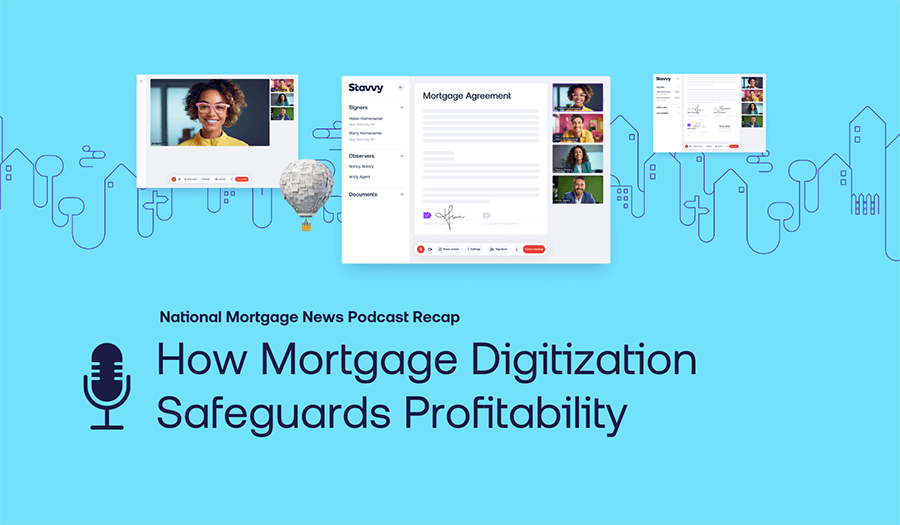Remote notarization is permanent in Rhode Island.
On June 30, 2022, Rhode Island Governor Daniel McKee signed a bill into law that permanently allows remote online notarization (RON).
The Rhode Island remote notarization law was effective immediately, and it codifies procedures that were initially made available by executive order in response to the COVID-19 pandemic.
Remote Notarization Rhode Island: A Summary
Permanent remote notarization in Rhode Island means that homebuyers can now close a real estate transaction in Rhode Island from anywhere.
Homebuyers can sign documents remotely from anywhere in the world with the assistance of a Rhode Island-commissioned notary. For example, prior to the temporary RON procedures that went into place in 2020, a person living in California that wanted to purchase a house in Rhode Island would have to appear in person in front of a notary in Rhode Island to sign closing documents that require notarization. This changes with the passage of the permanent Rhode Island remote notarization law.
Rhode Island Remote Notarization Law: A Deeper Dive
There are nuances to the law that affect homebuyers and RON service providers that want to leverage RON technology to complete eClosings in Rhode Island. Those include:
Visual and auditory requirements
It’s important to note that, per this bill, RON transactions can only be performed by a “communication technology” that provides real-time communication via sight and sound between a notary and the individual signing the mortgage document. The technology must also be able to facilitate communication with a remote person who has a hearing, vision, or speech impairment by providing reasonable accommodation for the transaction.
Remote electronic notary registration
Before performing their first RON transaction, the notary public must register with the Rhode Island Secretary of State and identify the technologies the notary public intends to use. The notary must also provide the Secretary of State with a copy of the electronic notary stamp issued by the technology provider. At Stavvy, we stand ready to assist our customers with the registration process.
Identification
The notary public must identify the signer through personal knowledge, a credible witness, or two different types of identity proofing. Identity proofing happens when a third party verifies a remotely-located individual by analyzing personal details provided by private or public data sources. The appropriate identification procedures are at the discretion of the technology provider, but the Secretary of State notes that most technology providers utilize knowledge-based authentication (KBA) and credential analysis. Remote notarization on the Stavvy platform equips end-users with the highest quality remote identity verification tools to make this process easy for notaries and signers alike.
Video retention
The technology provider, on behalf of the notary, must retain the audio-visual recording of the transaction for at least 10 years after the recording is made in a secure, compliant electronic location.
Regulations
The Secretary of State may issue regulations concerning the approval of a communication tool or identity proofing. The technology and identity-proofing solutions must conform to these standards.
Other requirements
A few other components include that:
- The notary must reasonably confirm that the mortgage document matches the one that the remote individual has signed.
- The notarial certificate must contain a statement substantially similar to: "The notarial act utilized communication technology.”
- A notary public may charge a maximum fee of $25 per document or notarization. All fees must be disclosed by the notary public prior to the transaction.
At Stavvy, we’ll continue to keep an eye on the details of this law’s implementation – as well as RON laws in other states – to bring you more information.
Stavvy is a RON service provider in Rhode Island
No matter where you are on your eClosing and RON journey, Stavvy is here to help you make digital real estate transactions a reality. The Stavvy platform was built to help Rhode Island organizations grow and attract more loyal customers and partners with remote online notarization.
The Stavvy platform empowers real estate professionals to perform streamlined transactions with greater accuracy in less time. Through a secure platform with identity verification, video conferencing, and eSignature capabilities, end users can submit, notarize, and deliver essential real estate documents from anywhere. With every tool needed to streamline signings and an accessible support team to back it up, eClosing with RON on the Stavvy platform is helping real estate professionals provide speedier digital transactions at scale, offer an exceptional customer experience, and stay ahead of their competitors.
Learn more about how the  is taking real estate beyond documents.
is taking real estate beyond documents.
Editor's note: This post was originally published in August 2022 and has been updated.



![[Webinar Recap] Advancing Your Digital Default Servicing Strategy](https://blog.stavvy.com/hubfs/advancing-your-digital-default-servicing-strategy-blog-recap.png)